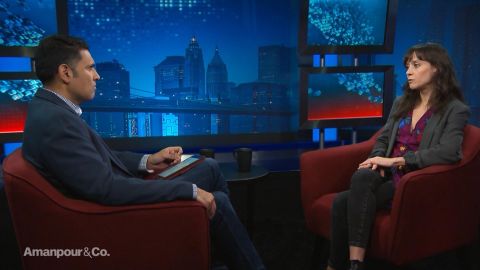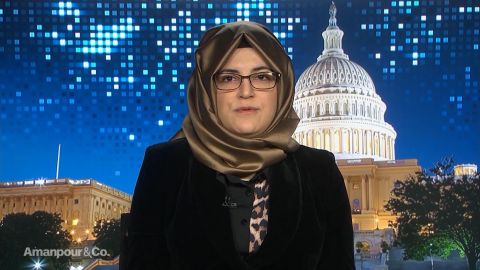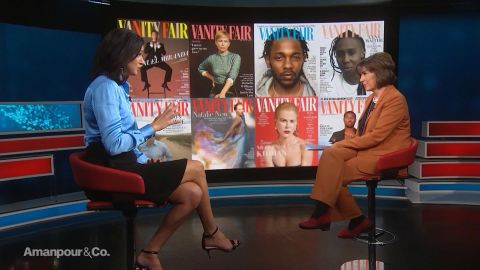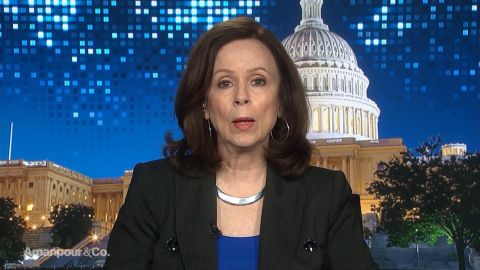Read Transcript EXPAND
CHRISTIANE AMANPOUR: Do you feel in your gut a sort of similarity, at least in the rhetoric that is coming from the Trump White House as did from the George W. Bush White House, as they prepared and paved the ground for war with Iraq?
ROBIN WRIGHT, CONTRIBUTING WRITER, THE NEW YORKER: Well, certainly, there is a sense in Washington that there are similarities between these two very dangerous Middle East confrontations with two leaders with whom we have very long histories of hostility. But there are differences, of course, and that you saw the — a confrontation with Saddam Hussein play out over many, many years. The recent tensions with Iran, given they’ve just engaged with a nuclear agreement a few years ago, has escalated dramatically within the last week and arguably, since the president withdrew from the Iran nuclear deal and more specifically, decided to designate the entire Revolutionary Guard Corps as a terrorist group, which is the first time the U.S. has done that with any army anywhere in the world.
AMANPOUR: Not to put too fine a point on it, but there are many legislators who are very worried. Senator Menendez, the ranking member of the Senate Foreign Relations Committee has said, “We don’t need another Iraq weapons of mass destruction moment, where we are engaged in a conflict without understanding, testing the (INAUDIBLE) of the intelligence that might lead to us to set actions. Number two, you cannot make national security decisions in the blind. And that’s what we’re being asked to do with a lack of information.” What is the end game as far as you can gather?
WRIGHT: Well, I think you’ve asked the big question, and I think there’s a difference within the administration even over what is the end game. I think you see different goals represented by President Trump, his national security adviser, John Bolton, and the secretary of state, Mike Pompeo. The president has actually reached out to the Iranians and said he would be willing to talk to the supreme leader. So, there is that diplomatic overture. The national security adviser, on the other hand, has long called for regime change. He wrote an op-ed in the “New York Times” talking about bombing Iran, this was before he took office, as the only way to prevent Tehran from getting a nuclear weapon. And Mike Pompeo has talked about regime change but with 12 demands that are so sweeping that it kind of sounds like either an overhaul of who is in power or regime change.
So, I think they’re all in unity when it comes to, we don’t want to see Iran become more aggressive, we don’t want to see it threaten either American interests or allies in the Middle East. But then, I think after that, there is a severe difference, and I think that is beginning to be illustrated. But I do think that over the last 10 days, we’ve seen an escalation. And a sense in Washington that something is going on. The big question, of course, is are the Iranians responding to what the United States has done in terms of saying, “You will not be able to shift any oil anywhere in the world. Therefore, we’re going to starve you economically.”
About This Episode EXPAND
Christiane Amanpour speaks with writer Robin Wright about the troubling state of U.S. foreign diplomacy; Hatice Cengiz about her late fiancé, Jamal Khashoggi; and editor-in-chief of Vanity Fair Radhika Jones about her first year at the magazine. Hari Sreenivasan speaks with filmmaker Rachel Lears about her film “Knock Down the House.”
LEARN MORE



